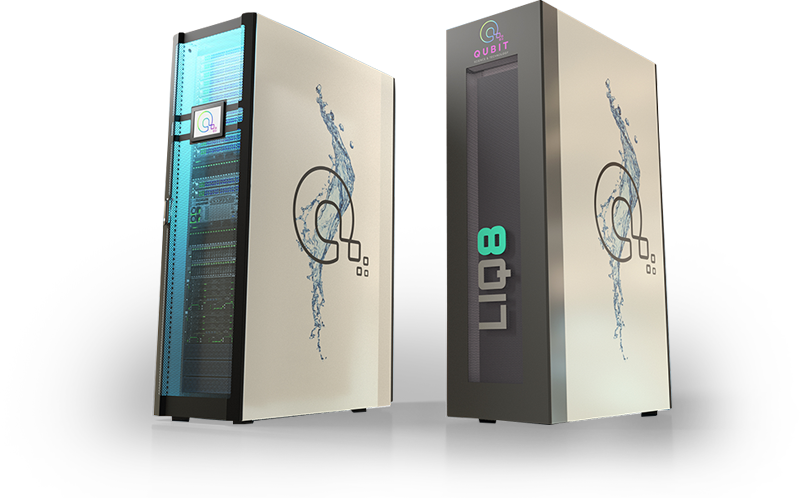In an era where energy efficiency and sustainability are top priorities for businesses, the quest for innovative solutions to manage energy consumption has never been more urgent. One of the key areas where advancements are being made is in data centers, which rely heavily on cooling systems to prevent equipment from overheating. The emergence of AI-powered cooling systems has ushered in a new wave of efficiency, and companies like Qubit Science are leading the charge by incorporating artificial intelligence (AI) into cooling technology.
In this blog, we will explore how AI-powered cooling systems are transforming the industry, with a special focus on the groundbreaking work being done by Qubit Science.
The Challenge of Cooling in Data Centers
Data centers are the backbone of modern digital infrastructure, powering everything from cloud computing to e-commerce platforms. However, they come with a significant challenge—managing the heat generated by the high-performance servers and equipment housed within them. Traditional cooling systems, such as air conditioning units, are often inefficient, running at full capacity regardless of actual cooling needs. This leads to wasted energy and increased operational costs.
In addition, as the demand for data storage and processing power grows, so too does the need for more effective and energy-efficient cooling solutions. The traditional methods often fall short in maintaining an ideal balance between performance and energy consumption. This is where AI-powered cooling systems come in.
How AI-Powered Cooling Systems Work
AI-powered cooling systems leverage artificial intelligence and machine learning algorithms to optimize the cooling process in data centers. Unlike conventional systems, which operate based on predefined settings or manual adjustments, AI cooling systems use real-time data to make intelligent decisions about how to regulate temperature and airflow.
These systems continuously monitor variables such as temperature, humidity, and server load, adjusting the cooling levels dynamically to ensure that each area of the data center receives the appropriate amount of cooling. The AI system can predict temperature fluctuations based on historical data and environmental factors, allowing for proactive adjustments before issues arise.
In simple terms, AI-powered cooling systems function like a smart thermostat, but on a much larger and more complex scale. By making cooling adjustments based on real-time conditions, AI systems can significantly reduce energy consumption while preventing equipment from overheating.
The Role of Qubit Science in AI-Powered Cooling
At the forefront of the AI-powered cooling revolution is Qubit Science, a company that has been pushing the boundaries of both AI and quantum technology to create more efficient and sustainable solutions for industries across the board. Qubit Science is particularly focused on combining AI with quantum computing to address complex problems such as energy management in data centers.
Quantum computing, while still in its early stages, holds immense potential in the field of optimization, and Qubit Science is leveraging this potential to revolutionize cooling systems. By using quantum algorithms, Qubit Science is developing systems that can analyze vast amounts of data in real-time and make faster, more accurate predictions about cooling needs. This enables data centers to not only reduce energy consumption but also maintain optimal operating conditions for their equipment.
For example, Qubit Science’s AI-powered cooling solutions integrate quantum-enhanced machine learning to predict how environmental conditions might change and adjust the cooling process in real-time. This predictive capability makes their systems highly adaptable and responsive to dynamic conditions, providing unparalleled efficiency compared to traditional cooling systems.
Benefits of AI-Powered Cooling Systems
Energy Efficiency
One of the most significant benefits of AI-powered cooling systems is their ability to reduce energy consumption. By adjusting cooling based on real-time data and predictions, these systems prevent overcooling and undercooling, which are common in traditional methods. This leads to substantial savings in energy costs, making data centers more cost-effective and sustainable.
Operational Reliability
AI-powered systems can predict potential cooling failures and adjust proactively, reducing the risk of overheating and equipment failure. This increases the reliability of data center operations and minimizes the risk of downtime, which can be costly for businesses.
Scalability
As businesses expand and data demands increase, AI-powered cooling systems can easily scale to meet the growing needs of data centers. These systems can adapt to new equipment and changing environments without requiring a complete overhaul of existing infrastructure, making them a future-proof solution.
To Sum Up
Maximizing efficiency in data centers is critical as the demand for digital services continues to grow. AI-powered cooling systems represent a transformative shift in how we approach energy management, reducing waste while keeping systems running smoothly. With pioneers like Qubit Science leading the charge, the future of AI-powered cooling looks bright, offering not only a smarter way to cool data centers but also a more sustainable one. By adopting these innovative technologies, businesses can improve both their bottom line and their environmental impact, paving the way for a greener and more efficient future in the data center industry.




